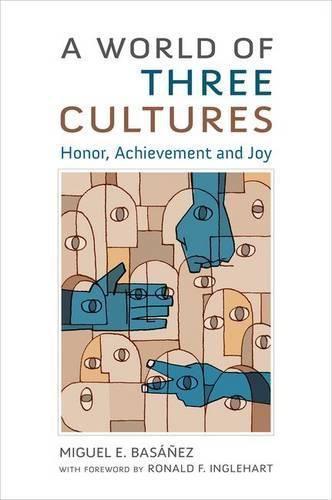Readings Newsletter
Become a Readings Member to make your shopping experience even easier.
Sign in or sign up for free!
You’re not far away from qualifying for FREE standard shipping within Australia
You’ve qualified for FREE standard shipping within Australia
The cart is loading…






In this book, Miguel Basanez presents a provocative look at the impact of culture on global development. Drawing on data from governments, NGOs, the World Values Survey and more addressing over one hundred countries, he argues that values, as the building blocks of culture, are directly related to the speed with which social, cultural and economic development occurs. Basanez utilizes quantitative survey data to delineate three cultural hyperclusters across the globe: cultures of honor, which prioritize political authority; cultures of achievement, which emphasize economic advancement; and cultures of joy, which focus on social interactions. According to Basanez, these cultures evolved chronologically, mirroring the development of agrarian, industrial and service societies.He argues that a country’s developmental path is profoundly influenced by its people’s values and culture, as crystallized through its formal and informal governing institutions. Culture is passed down over generations through families, schools, the media, religious institutions, leadership, and the law. Although culture and values are in a permanent state of evolution, leaders and policymakers can also push cultural change in order to promote desirable goals such as economic growth, democratization, and equality. Over the course of the book, Basanez introduces two new measures of development: the Objective Development Index (which blends rubrics such as health, education, income, gender equality, political rights and civil liberties, and economic inequality) and the Subjective Development Index (which uses responses to the World Values Survey to classify countries according to their values).
$9.00 standard shipping within Australia
FREE standard shipping within Australia for orders over $100.00
Express & International shipping calculated at checkout
In this book, Miguel Basanez presents a provocative look at the impact of culture on global development. Drawing on data from governments, NGOs, the World Values Survey and more addressing over one hundred countries, he argues that values, as the building blocks of culture, are directly related to the speed with which social, cultural and economic development occurs. Basanez utilizes quantitative survey data to delineate three cultural hyperclusters across the globe: cultures of honor, which prioritize political authority; cultures of achievement, which emphasize economic advancement; and cultures of joy, which focus on social interactions. According to Basanez, these cultures evolved chronologically, mirroring the development of agrarian, industrial and service societies.He argues that a country’s developmental path is profoundly influenced by its people’s values and culture, as crystallized through its formal and informal governing institutions. Culture is passed down over generations through families, schools, the media, religious institutions, leadership, and the law. Although culture and values are in a permanent state of evolution, leaders and policymakers can also push cultural change in order to promote desirable goals such as economic growth, democratization, and equality. Over the course of the book, Basanez introduces two new measures of development: the Objective Development Index (which blends rubrics such as health, education, income, gender equality, political rights and civil liberties, and economic inequality) and the Subjective Development Index (which uses responses to the World Values Survey to classify countries according to their values).